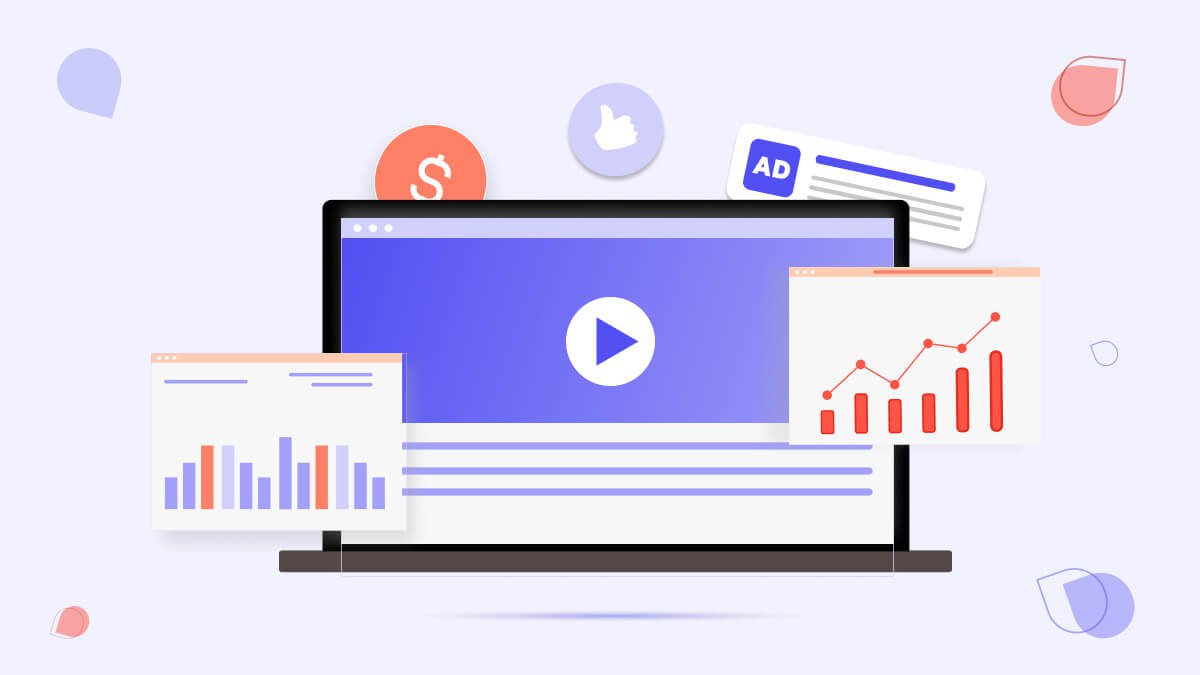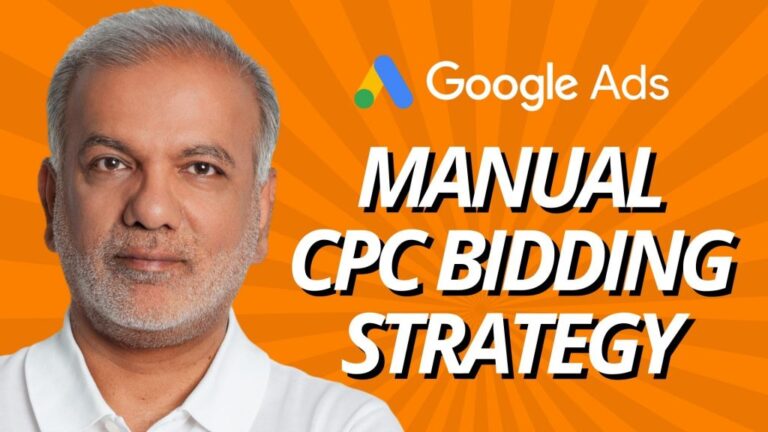To optimize your Google Ads budget for maximum ROI, you should focus on keyword research, ad targeting, and ad testing. By carefully selecting relevant keywords, narrowing your target audience, and experimenting with different ad variations, you can maximize your return on investment.
In a highly competitive online advertising landscape, it’s essential to optimize your Google Ads budget to achieve maximum ROI. By efficiently allocating your resources and implementing effective strategies, you can ensure that your advertising efforts yield the best possible results.
This guide will explore key tactics that will help you make the most of your Google Ads budget. Through keyword research, ad targeting, and ad testing, you can enhance your campaigns, reach the right audience, and boost your ROI. Stay tuned to discover the actionable steps to catapult your Google Ads performance and drive meaningful business growth.

Credit: www.mayple.com
Understanding Google Ads Budget
Understanding Google Ads Budget is crucial for achieving maximum ROI (Return on Investment) from your advertising campaigns. A Google Ads budget refers to the amount of money you are willing to spend on your ads within a specific timeframe, such as a day or a month. It plays a vital role in determining the success and profitability of your campaigns.
What Is A Google Ads Budget?
A Google Ads budget represents the maximum amount of money you allocate for your Google Ads campaigns. It is important to keep in mind that this budget is not fixed and can be adjusted as per your advertising goals, business objectives, and available resources. By setting a budget, you can control your advertising expenses and strategically allocate your funds to different ad groups, keywords, and targeting options.
Importance Of Optimizing Google Ads Budget
Optimizing your Google Ads budget is crucial for ensuring that your advertising efforts yield the best possible results. When you optimize your budget:
- You allocate your budget to the most profitable campaigns, ad groups, and keywords.
- You minimize wasted spend by identifying and pausing underperforming campaigns.
- You make data-driven decisions based on performance metrics to continuously improve campaign performance.
- You achieve a higher return on investment (ROI) by maximizing the effectiveness of your budget.
| Benefits of optimizing Google Ads budget |
|---|
| Increased visibility: By investing in your most profitable campaigns, you ensure that your ads appear frequently in front of your target audience, increasing brand awareness and visibility. |
| Better targeting: Optimizing your budget allows you to refine your targeting options, reaching the right audience segments who are more likely to convert into customers. |
| Cost-efficiency: When you optimize your budget, you minimize wasted spend on underperforming ads, making your advertising efforts more cost-effective. |
| Improved campaign performance: By continuously analyzing and optimizing your budget, you identify the best performing campaigns, ad groups, and keywords, leading to improved overall campaign performance. |
In conclusion, understanding and optimizing your Google Ads budget is essential for maximizing the ROI of your advertising campaigns. By allocating your budget strategically and continuously improving your campaign performance, you can drive more targeted traffic, increase conversions, and ultimately achieve your business goals.

Credit: www.10comwebdevelopment.com
Proven Strategies For Maximizing Roi
When it comes to running Google Ads campaigns, optimizing your budget for maximum return on investment (ROI) is crucial. With the right strategies in place, you can make the most out of your ad spend and achieve your desired campaign goals. In this article, we will discuss proven strategies that can help you maximize your ROI and get the most value from your Google Ads budget.
Setting Clear Campaign Goals
Before diving into optimizing your Google Ads budget, it’s essential to set clear campaign goals. Having specific and measurable goals will guide your optimization efforts and help you stay focused on achieving desired results. Whether your goal is to increase website traffic, generate more leads, or drive sales, clarifying your objectives upfront will enable you to tailor your ad campaigns accordingly.
Performing Thorough Keyword Research
One of the most critical aspects of optimizing your Google Ads budget is performing thorough keyword research. By identifying the right keywords for your business and target audience, you can increase the relevance and effectiveness of your ads. Begin by brainstorming a list of relevant keywords and phrases that potential customers might use to find your products or services. Utilize keyword research tools to expand your list and identify high-volume and low-competition keywords. This research will help you target the right audience and maximize your ad budget.
Utilizing Ad Scheduling And Bid Adjustments
Ad scheduling and bid adjustments can significantly impact your ROI by allowing you to target your ads at the most opportune times. Determine when your target audience is most active and likely to convert, and schedule your ads accordingly. By focusing your budget on these peak times, you can maximize your ad performance and increase the chances of converting leads. Additionally, utilize bid adjustments to allocate higher budgets to top-performing keywords and decrease investments in underperforming ones. This optimization strategy ensures that your budget is allocated where it will yield the best results.
Implementing Conversion Tracking
Implementing conversion tracking is vital for optimizing your Google Ads budget effectively. By setting up conversion tracking, you can measure the success of your ad campaigns and understand which keywords and ads are driving the most conversions. This data will enable you to make informed optimization decisions and make necessary adjustments to maximize your ROI. Configure your conversion tracking by setting clear conversion goals, such as form submissions or purchases, and implement the necessary tracking codes on your website to capture this valuable data.
Regularly Monitoring And Optimizing Ad Performance
Once your Google Ads campaigns are up and running, the key to maximizing ROI lies in regular monitoring and optimization. Regularly review your campaign performance and analyze data such as click-through rates (CTR), conversion rates, and cost per acquisition (CPA). Identify areas for improvement and make necessary adjustments, such as refining your ad copy, updating landing pages, and tweaking bid strategies. Continuously monitoring and optimizing your ad performance will ensure that your budget is being used efficiently and that you are getting the most out of your Google Ads investment.
Advanced Techniques To Stretch Your Google Ads Budget
Discover advanced techniques to optimize your Google Ads budget for maximum ROI. By implementing these strategies, you can stretch your budget further while effectively reaching your target audience and driving conversions.
Using Ad Extensions For Enhanced Visibility
One advanced technique to optimize your Google Ads budget and increase visibility is by utilizing ad extensions. Ad extensions are additional snippets of information that appear alongside your ad, making it more informative and engaging. They provide extra details about your business, such as phone numbers, location, links to specific pages on your website, or even customer reviews.
By using ad extensions, you can improve your ad’s click-through rate (CTR) and, consequently, increase the chances of conversion. These extensions make your ads stand out from the competition and provide users with more reasons to click on your ad instead of others. Make sure to take advantage of different types of ad extensions, including call extensions, location extensions, sitelink extensions, and review extensions, to maximize the visibility and effectiveness of your ads.
Leveraging Remarketing For Targeted Campaigns
To get the most out of your Google Ads budget, remarketing is a powerful strategy to consider. Remarketing allows you to target users who have previously interacted with your website or engaged with your ads. It enables you to reconnect with these potential customers, reinforcing your brand’s presence and increasing the likelihood of conversion.
Remarketing campaigns should be well-planned and segmented based on specific user behaviors or interests. By tailoring your ads to these audiences, you can create a more personalized experience, ensuring that your message resonates with them and increases the chances of conversion. Consider using dynamic remarketing to dynamically display ads featuring products or services that users have previously viewed on your website, providing them with a gentle reminder and enticing them to complete their purchase.
Exploring Alternative Ad Formats Like Video And Display Ads
While text ads are the most common ad format in Google Ads, it’s essential to consider alternative ad formats like video and display ads to make the most of your budget. Video ads, for instance, can be highly engaging, delivering your message in a visually compelling way and capturing users’ attention.
Display ads, on the other hand, allow you to showcase your visual assets, including images and interactive elements. This can be particularly useful if you have a visually appealing product or want to create brand awareness. By diversifying your ad formats, you can reach a broader audience and attract more clicks, ultimately stretching your Google Ads budget further.
Audience Targeting And Segmentation
A crucial aspect of achieving a high ROI with your Google Ads budget is precise audience targeting and segmentation. Instead of casting a wide net, focus on targeting specific demographics, interests, or behaviors that align with your business objectives.
By understanding your target audience and narrowing down your targeting options, you can ensure that your ads reach the right people at the right time. Use the available audience targeting tools in Google Ads to refine your campaign settings, such as demographics, interests, and remarketing lists. This way, you can deliver more relevant ads and increase the chances of conversion, all while optimizing your budget.
Leveraging Machine Learning And Automation
Machine learning and automation can be game-changers when it comes to optimizing your Google Ads budget. Through the power of artificial intelligence, Google Ads can autonomously optimize your campaigns, making data-driven decisions to maximize your ROI.
By leveraging machine learning algorithms, Google Ads can automatically adjust your bids, targeting, and ad placements based on real-time data, ensuring you get the most out of your budget. This automation saves valuable time and allows you to focus on other critical aspects of your advertising strategy.

Credit: agencyanalytics.com
Frequently Asked Questions Of How To Optimize Your Google Ads Budget For Maximum Roi
How Do I Maximize Roi In Google Ads?
To maximize ROI in Google Ads, follow these steps: – Set clear goals and track metrics to measure success – Conduct keyword research to optimize ad targeting – Create compelling ad copy and landing pages – Monitor performance regularly and make adjustments – Use audience targeting and remarketing strategies to reach relevant users.
How Do I Optimize My Budget For Google Ads?
To optimize your budget for Google Ads, follow these steps: 1. Determine your advertising goals and target audience. 2. Conduct keyword research to identify relevant and high-performing keywords. 3. Set a daily or monthly budget that aligns with your goals and objectives.
4. Monitor and adjust your campaign regularly to ensure optimal performance. 5. Use ad scheduling and bidding strategies to maximize your budget’s efficiency.
How Do You Optimize Campaigns For Maximum Roi?
Optimizing campaigns for maximum ROI involves carefully analyzing data, identifying high-performing strategies, adjusting targeting and messaging, and continually monitoring and optimizing performance to achieve the best return on investment. These steps help to ensure efficient and effective use of resources.
What Is The Ideal Roi For Google Ads?
The ideal ROI for Google Ads varies depending on factors such as industry, campaign objectives, and budget, but generally, a return on investment of at least 300% is considered good. It’s important to monitor and optimize your campaigns regularly to achieve the best results.
Conclusion
Optimizing your Google Ads budget is crucial for achieving maximum ROI. By implementing a strategic approach and following the tips outlined in this blog post, you can make every dollar count and drive tangible results for your business. Remember to regularly monitor and adjust your campaign, and focus on targeting the right keywords, refining your ad copy, and leveraging data-driven insights to improve your overall performance.
With consistent effort and a well-optimized budget, you can unlock the full potential of your Google Ads campaigns.




